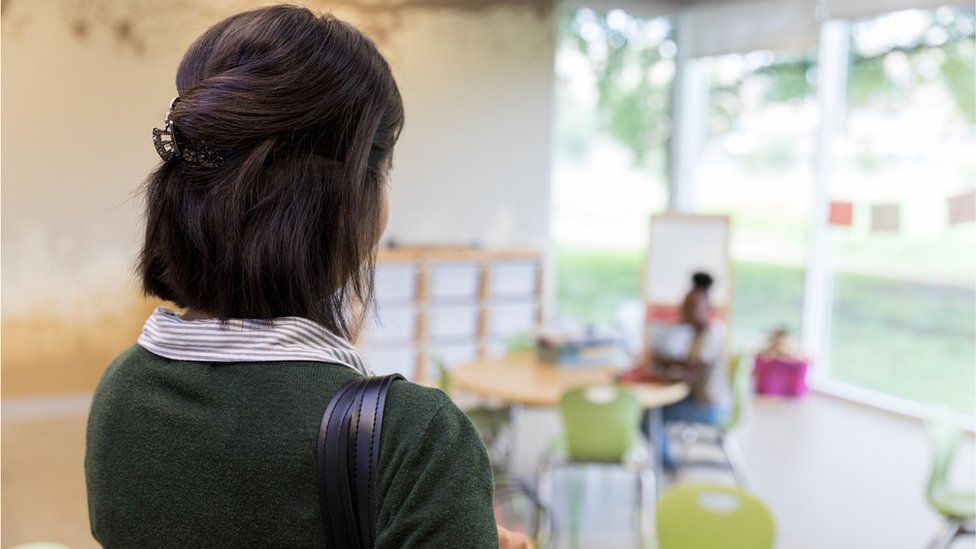2 hours ago
About sharing
Ofsted inspectors should not be in classrooms and the whole system needs “a big change”, an inquiry has said.
The Beyond Ofsted inquiry, chaired by former schools minister Lord Jim Knight and funded by the National Education Union, called for a “transformational” alteration to school inspections.
The inquiry recommended that schools should instead be responsible for their own improvement plans.
Ofsted said inspections are needed to ensure a high-quality education.
“Children only get one chance at education, and inspection helps make sure that education standards are high for all children,” a spokesperson said.
But Lord Knight’s inquiry said Ofsted was now seen as “toxic” and “not fit for purpose” and was in need of major reform.
The suicide of head teacher Ruth Perry earlier this year highlighted the pressure inspections can put on schools and led to a debate about how Ofsted operates.
The inquiry recommended stopping Ofsted, the education inspectorate for England, from having “direct contact” with schools.
Instead, schools should draw up their own improvement plans to be accountable to parents and the wider local community, the inquiry said.
That would leave Ofsted to look at how well schools, or groups of schools, are managed.
Schools would carry out their own “self-evaluations” by working with an external “improvement partner” – an experienced school leader, including serving heads, from the school’s trust or local authority – to produce a performance review.
That would mean an end for the current system of single-word judgements, from “outstanding” to “inadequate”.
Safeguarding in schools should also be looked at in separate yearly checks, overseen by a new national body, the inquiry said.
Carried out by academics from University College London, the inquiry considered a range of options for reform based on a survey, focus groups, international comparisons and research material.
In his report, Lord Knight said Ofsted had become “under-resourced” for the “high-stakes job” expected of it.
Inspections had gone from week-long deep dives by expert teams to “snapshot judgements by fewer than a handful of inspectors”, he said.
The report said routine inspections currently carried out by Ofsted should be paused while the inquiry’s recommendations are put in place.
Commenting on the report, Lord Knight said: “The evidence is clear. Ofsted has lost the trust of the teaching profession, and increasingly of parents. There is now an opportunity for transformational change.
“Our recommendations are designed to restore trust and address the intensification of leader and teacher workload, while reforming a system which is ineffective in its role of school improvement.”
A spokesperson for Ofsted said “nine out of 10” schools say inspections help them improve.
“We always want inspections to be a constructive experience for school staff,” they said.
“Our inspectors are all former or current school leaders and well understand the nature and pressures of the work.”
A Department for Education spokesperson pointed to a rise in the proportion of schools rated good or outstanding, up to 89% from 68% in 2010.
“Ofsted has a crucial role in providing a regular, independent evaluation of every school, providing reassurance to parents that pupils are receiving the high quality education they deserve and are being kept safe,” they added.
Related Topics
13 June
8 July
13 June


